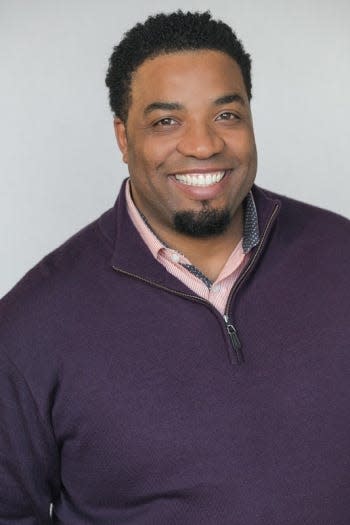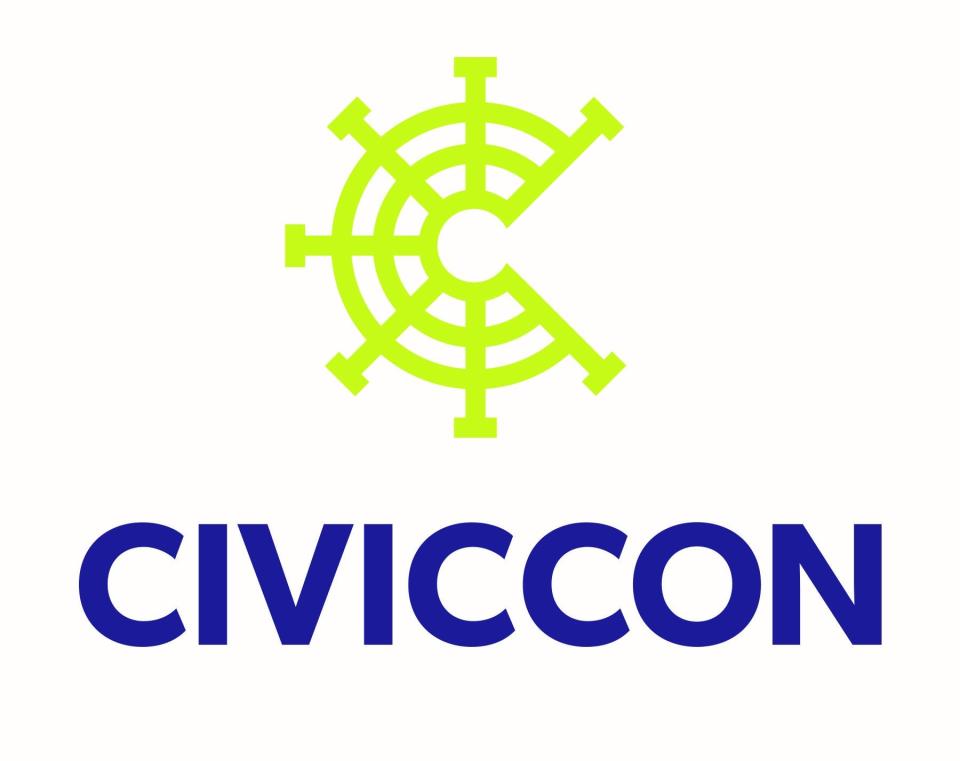There's a plan to end homelessness and billions for communities that buy in. How it works.
Through the collaboration of 19 federal agencies and with input from nearly 650 different communities across the country, the U.S. Interagency Council on Homelessness has crafted a strategic plan to prevent and end homelessness.
The 104-page document, titled All In, includes a roadmap of federal action, detailed demographic data on the more than 1 million Americans living in homelessness and a long list of policies and priorities aimed at creating solutions.
But for Joe Savage Jr., a U.S.I.C.H. senior regional advisor, the key takeaway of the report is right in the name.
"We want communities to look at All In and take an all-of-community approach," Savage said. "You need the local government at the table. You need the nonprofits, you need the faith-based entities at the table. You need the justice system, as well as the child welfare system, even the health care system. All of these entities need to be at the table. ... That's why we have the title All In, it takes everyone to be in the solution and solving this problem."
Last time at CivicCon: What did walkability expert find in Pensacola? A marvelous canvas and a brutally ugly street.
A brewing crisis: The clock's ticking to clean up grungy Brent homeless camp. So far, nothing's been done
Savage will be in Pensacola on May 9 talking to elected officials, city and county staff, social workers and everyday citizens about the key pillars of the All In plan and how communities can maximize their chances of receiving federal funding to combat homelessness.
Along with presenting at CivicCon on Tuesday, May 9 from 6-7:30 p.m. at The REX Theatre, Savage will present at a joint session of the Pensacola City Council and the Escambia County Board of County Commissioners on Tuesday morning.
Savage has over 15 years of experience in the fields of homelessness, social policy, economic development and human services administration, and currently serves at the U.S.I.C.H. senior regional advisor for the Mid-Atlantic and Southeastern U.S.
However, working in the field wasn't originally part of Savage's plan.
He started out as a pre-med student pursuing undergraduate degrees in both neuroscience and religious studies.
"I had always had an interest in the relationship between the church in the community in terms of addressing the holistic man, their social, their economic, as well as their religious needs," he said.

Related: Pensacola-area homelessness count is up 30%, and we know many more are uncounted
During his studies, took an internship with the city of Philadelphia and landed in the Office of Supportive Housing.
"When I was doing an internship as an undergrad before I was supposed to start med school, I saw how a lot of the health problems were related to other social conditions," he said. "So, I saw a child who was malnourished because that neighborhood did not have access to good food, supermarkets, etc., and I sort of had this epiphany that if I went into social policy, if I went into areas of addressing homelessness, I could have a broader impact not just on healthcare, but on a broader social and economic scale. And not just on individuals, but on an entire community."
Homelessness is not a "moral failure," it's a social policy failure
Homelessness is not the result of someone's "moral failure," Savage said.
"Homelessness has to do with the failure of our society's social safety net, our inability to make sure everyone has access to affordable housing, everyone has access to adequate education, everyone has access to health care to address their mental health issues, their substance use issues. Veterans coming back, that they have access to adequate services to deal with the PTSD. These are the causes of homelessness, and not the moral flaws of the particular individual."
The All In report notes that many marginalized groups — especially people of color, LGBTQI people and peoplewith disabilities — are overrepresented in the homeless population when compared to their overall percentage in the U.S. population.
Pensacola's homeless: Team to provide care for homeless, public restrooms part of new plan
The All In report's findings and policies draw heavily on the experiences and insights of people experiencing homelessness, as well as the service providers on the ground working to support them.
"So, some of the biggest challenges that we heard in listening sessions: the lack of affordable housing, and that's both rental housing as well as access to homeownership opportunities; rising rents, in contrast to slow income growth; not enough supports to maintain housing; rising unsheltered homelessness; the criminalization of homelessness, in terms of it being made into local statutes that it's illegal to sleep in a park, etc., and (people) being fined or be jailed; and then burnout amongst workers that are just trying to serve this community," Savage said.
He said there were also some positives trends to come out of the conversations.
One is that the White House is making an "unprecedented investment" into homelessness, Savage said. The All In plan sets an ambitious goal to reduce homelessness 25% by 2025 and encourages state and local governments to use the plan as a blueprint for developing their own strategic plans and for setting their own goals.
According to the White House, "To prevent and reduce homelessness, the (2023-2024) Budget provides $3.7 billion, an increase of $116 million over the 2023 enacted level, for Homeless Assistance Grants to meet renewal needs and expand assistance to approximately 25,000 additional households, including survivors of domestic violence, dating violence, sexual assault, stalking, and human trafficking and homeless youth."
That funding is in addition the American Rescue Plan Act and Coronavirus Aid, Relief, and Economic Security Act funds. The city of Pensacola, for instance, has about $3 million in ARPA funding dedicated to homeless, about $640,000 of which was used to create shelters for homeless individuals and families.
Dig deeper: Despite its financial flaws, Pensacola grants REAP $370K to create housing for the homeless
"The pandemic taught us a lot about addressing homelessness. It taught us the benefit of non-congregate (or non-communal) shelter, the benefit of having enough emergency rental assistance, and then also the impact that eviction moratoriums can have on preventing homelessness," Savage said.
"Then, also focusing on racial equity, something we've been promoting at the federal level is looking at the racial disparities that exist within the homelessness system. And so communities have really been digging into their data, and it's really helping them get a better understanding of not just the solutions, but also the causes, because they're realizing there are larger systemic issues that are disproportionately impacting persons of color."
The All In is built around three foundational pillars — equity, data and collaboration — and three solution pillars —housing and supports, homelessness response and prevention. Each pillar includes strategies the federal government will pursue to facilitate increased availability of and access to housing, economic security, health care, and stability for all Americans.
Communities that align themselves with All-In pillars will likely receive more federal funding
Communities that align their efforts to the All In approach will find it easier to tap into the federal resources and funding, according to Savage.
"When Pensacola goes after federal funding, they will score higher because their system at the local level will be aligned with the priorities at the federal level. And when you score higher, you get a better chance of getting maximum funding," Savage said. "Whereas if you score lower, you may still get funded, but it'll be a lower amount."
A critical step, he said, is bringing the entire community to the table to participate in the solutions.
"So, the local government, No. 1, needs to provide political support. And what I mean by political support, the mayor, the local city council, whatever form it may be, they need to be openly expressive about wanting to do something to address homelessness," Savage said.
"They don't have to be the ones providing the services and providing the housing, but there are ways that the local government can support solving the problem, and that political support is key."
Additionally, service providers must be willing to take a housing-first approach.
"People can actually be taken directly from homelessness, put into a permanent housing situation — along with the services — so that they're able to remain stably housed," Savage said. 'So, if they need treatment, if they need mental health services, those services are wrapped around them so that they can stay in the house, and it's their choice to engage in those services.
"Because the research has shown us when it's the clients choice, they're more likely to engage in those services. So, if your community is really looking to align with federal priorities and what can you be doing, we need to make sure we're moving in a housing first direction throughout our entire system."
When the government says it intends to end homelessness, it doesn't mean that literally no one is ever homeless again. However, the goal is to ensure homelessness is "rare, brief and one time."
"We want communities to get their homelessness system to the point where homelessness is rare, it doesn't happen that often," Savage said. "It's brief, meaning if someone does fall into homelessness, they're not in it for a long period of time. And then it's one time or non-reoccurring, meaning once they exit out with a permanent solution, they're given the necessary support so that they don't come back into the system."

Savage will provide more information on All In: The Federal Strategic Plan to Prevent and End Homelessness, during a free, open-to-all CivicCon presentation May 9 at The REX Theatre, 18 N. Palafox St.
Registration for the event is available by searching "CivicCon" at eventbrite.com. People can submit a question for Savage during registration, or by emailing it directly to the event moderator at LNelless@gannett.com.
Savage's presentation will also be livestreamed at the News Journal's Facebook page and at pnj.com.
CivicCon is a nonprofit partnership with the Pensacola News Journal to make Pensacola a better place to live, grow work and invest. To learn more visit pnj.com/civiccon.
This article originally appeared on Pensacola News Journal: Pensacola CivicCon hosts Joe Savage on White House homelessness plan
